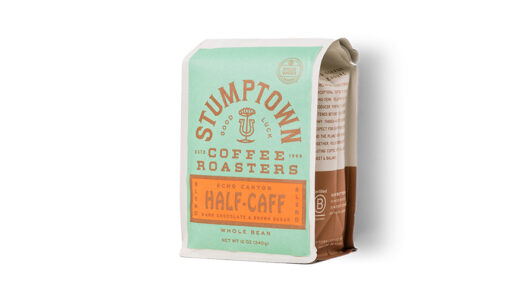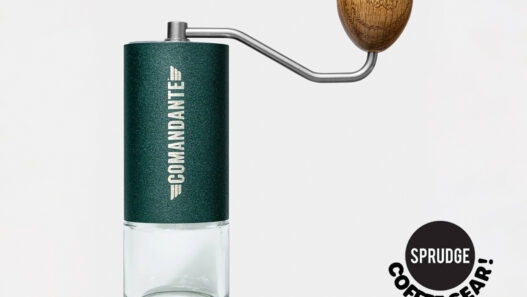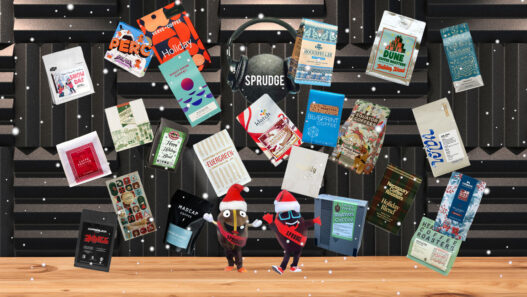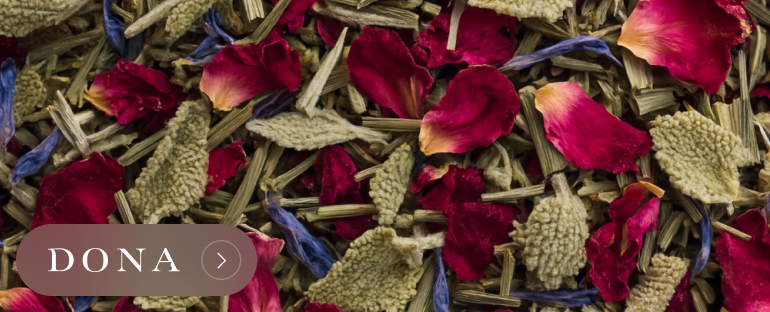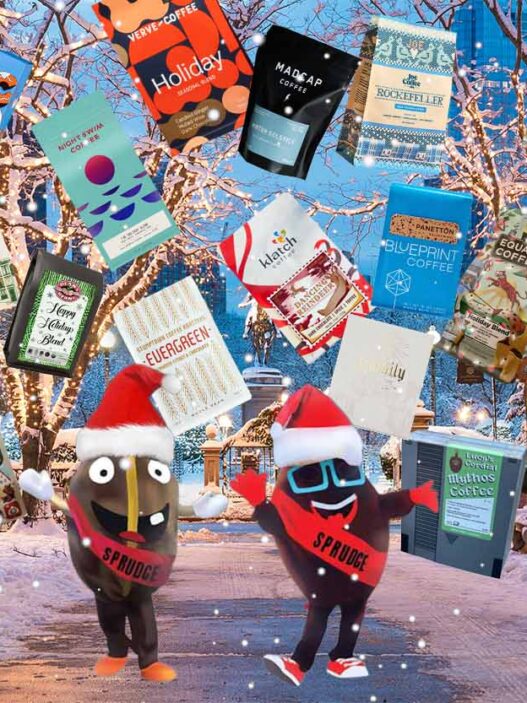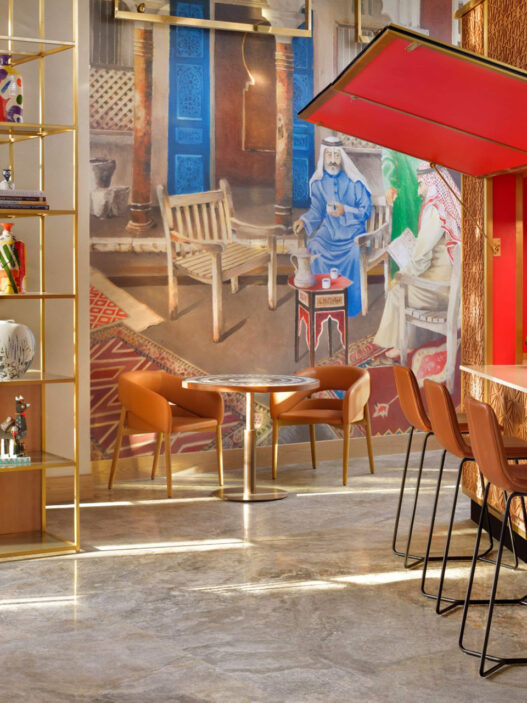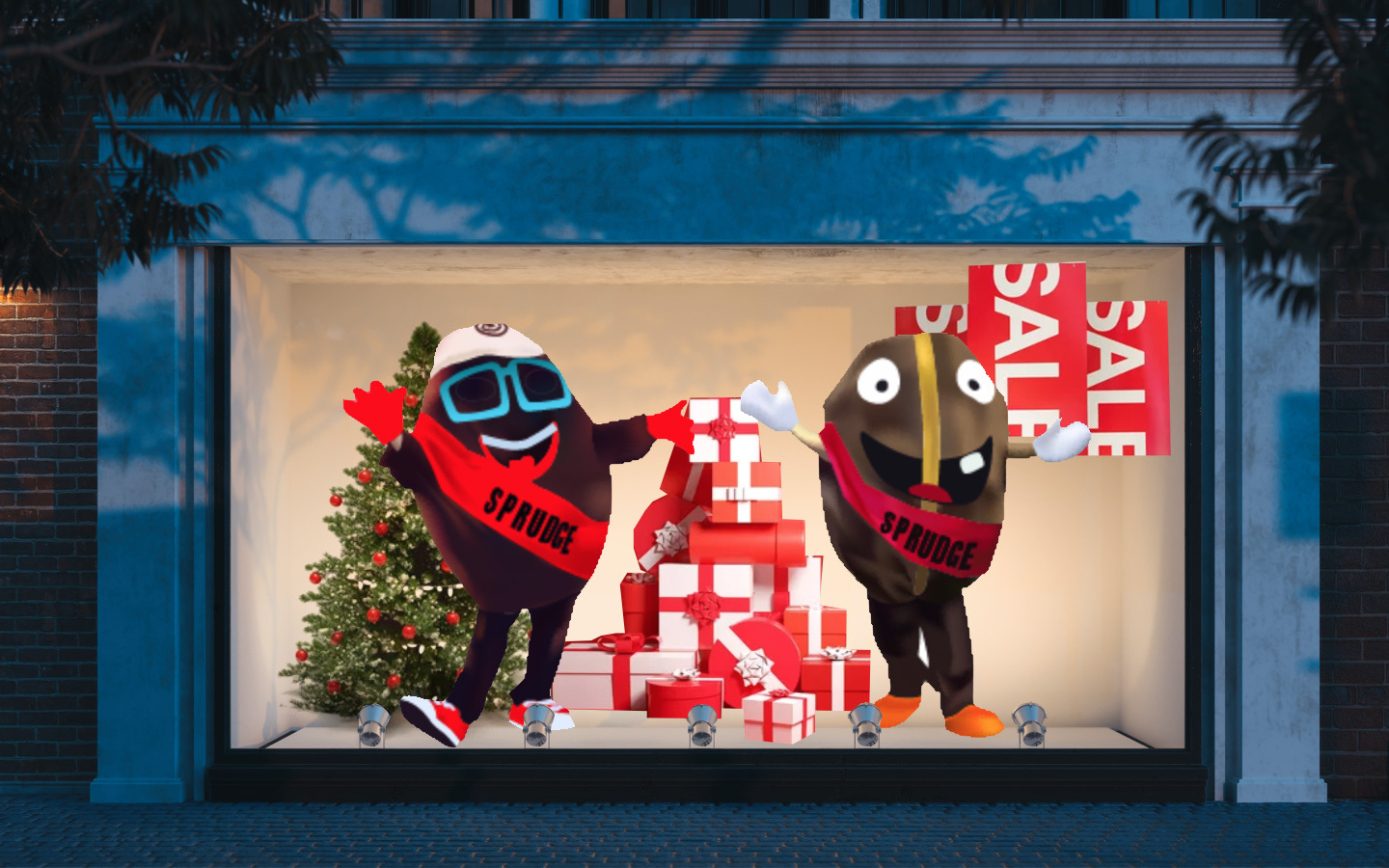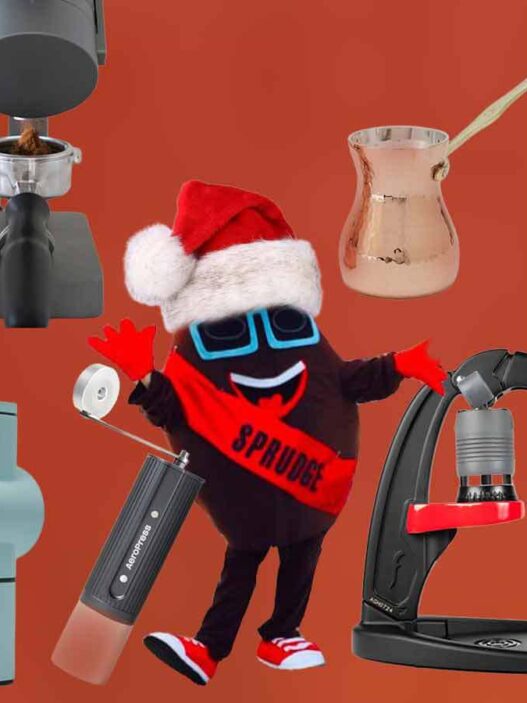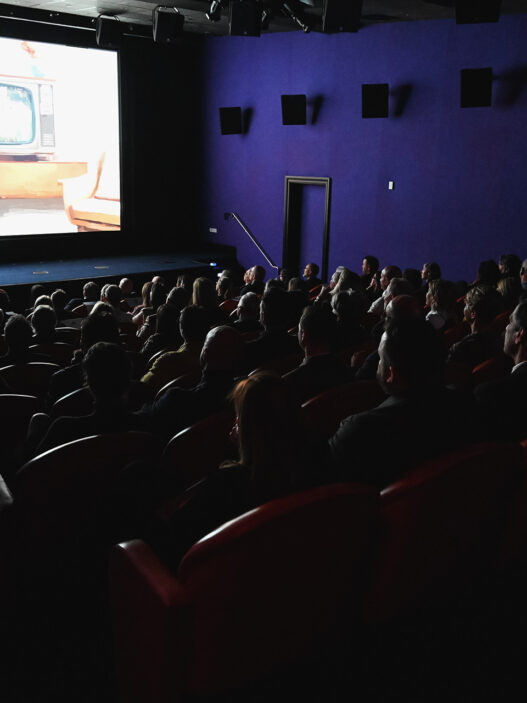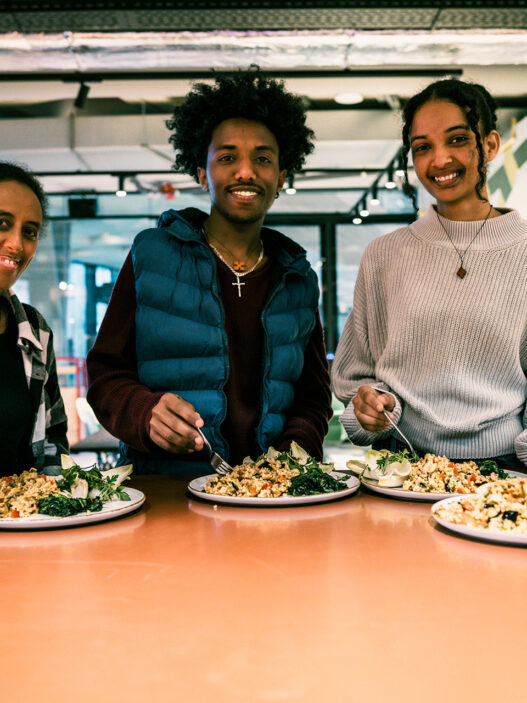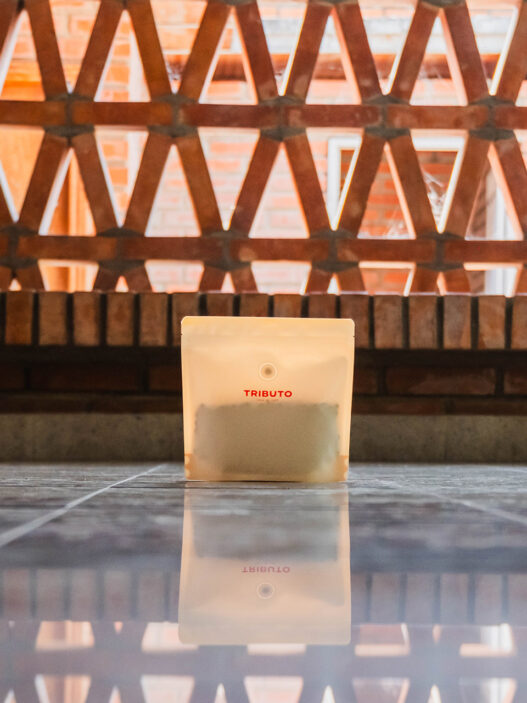The second morning of Symposium started with a little bit of that volatility we’d spent so much time talking about yesterday, when a group of protestors burst into shouts opposing the participation of Honduran President Porfirio Lobo Sosa. Their chants about Honduras’s continued struggles with oppression and suppression, drugs, kidnapping, and violence appeared to stun, confuse, and even irritate some attendees who were, up until the emotional display, simply milling about in quietly hungry desperation, waiting to get their hands on more stuffed biscuits.
The activists were quickly and calmly dispersed, and the doors were opened to attendees, who ruminated with each other about the incident.
“If we didn’t include speakers from origins where there was political unrest, that’d eliminate about 70% of coffee origins from being here,” I overheard one industry insider say. “We’re trying to do our jobs, and to buy better coffee, and to improve things in places like Honduras. We’re not the enemy. They’re yelling at the wrong people.”
(Note: There were no stuffed biscuits after all, but there was heightened security once the activists were dispersed.)
Coffee’s tumultuous political history has always been an undercurrent of the serious discussions bandied about at events like this, though some would rather downplay the inherent social and socioeconomic complexities in favor of loosey-goosey feel-good Specialty Coffee Can Save The World™ optimism, but getting bogged down in either soundbite cycle is dangerous and naive.
(This might be the lack of biscuits talking. Sorry; I took that pretty hard.)
Once the atmosphere cooled down a little, President Lobo spoke about the importance coffee has on the social and economic health of his country and countrymen: More than 300,000 of the national population of 7.5 million produce coffee, he said, which has helped established Honduras as the world’s second largest producer of washed Arabicas.
“We realize the social benefit that [coffee growers] are receiving is really extraordinary,” President Lobo said through a translator. “I am really grateful for you in the name of Honduras. Not just as the president, but in the name of the people.”
People were precisely the focus of Day 2’s presentations: How to relate to them, how to attract them, what they want from their morning cup and their roaster relationships, and how we can learn from them and interact with them better – from the producer to the coffee drinker to the tastemakers in the media.
Of the producer, Intelligentsia Coffee CEO Doug Zell offered what he feared might be an “impolite” perspective: “I think the issue with the producer at this point,” he said, “is that they perceive themselves as sustenance dirt farmers. We have to change the way they perceive themselves.” Intelli’s retail manager Stephen Morrissey chimed in to ask, “Why is it so fanciful to think that a person who plants a coffee tree would be able to think of that coffee as a Chemex brew?”
Finishing each others’ sentences, Zell and Morrissey drove home an idea so true and logical as to almost be novel: “Employ specialty practices and specialty systems if you are creating and expecting specialty coffee. We challenge you to go out there and…disrupt everything.”
But what happens when our perspectives get disrupted? When we actually look at the people who are at the other end of these “specialty” cups, what do they expect from our work? SCAA deputy executive director Tracy Ging served up a slice of honest humble pie with a presentation about the motivations, behaviors, and perceptions of the specialty-coffee customer base, reminding us that for the average consumer, coffee is all about heart. Sparkly hearts, to be exact – just like the ones found on myriad collages depicting “What Specialty Coffee Means to Me” created by focus-group participants in the coffee-driven markets of Los Angeles and Portland, OR.
“The people who drink [specialty coffee] have the capacity to love it deeply,” Ging said in response to the groups’ collected results. “Something happens over a great cup of coffee that’s different than when you’re just grabbing a cup of caffeine.”
Ging reminded the attendees that while our customers do have a healthy curiosity about what they’re drinking and how we make that magic happen, they don’t want to be beaten over the head with it: In fact, many of them sound like they kind of need a big ol’ barista bear hug.
“They want a love affair, and we’re giving them altitude and rainfall statistics,” she said. Not every detail, and not at every moment. And hey, flash a smile every once in a while, okay?
The morning’s final collection of panelists brought an even more varied set of perspectives to the table, speaking to the things that our coffee community can learn from focused – and arguably more successful – market approaches in the specialty booze, cheese, and beer world.
While Imbibe Magazine publisher Kate Foley implored us to learn the lessons of specialty booze by telling our story better (Be original! Inspire curiosity! Be iconic!), New Seasons Market food services division direct (and curd-lover) Jamie Powell spoke to the paths being blazed by cutting-edge cheese mongers, including… cheese-carving contests?
“‘Really, Jamie? You want me to think seriously about cheese art?’ No, I don’t want you to think seriously about it… But it gets customers who don’t know anything about cheese…interested, and then we know what to do with them.”
(For Pete’s sake: No biscuits at breakfast, and now you’re talking about cheese – glorious cheese! – right around lunchtime?? #NotFair.)
Finally, Coffee Shrub’s Christopher Schooley swung for the fences with a great video presentation about the home-coffee experience, raising important contrasts from what booze and cheese present to their customer bases but that are more difficult for us with kitchen-coffee consumers.
“That cheesemonger or that brewer gets to present a fully actualized product to the consumer,” Schooley argued. “That’s not exactly the case with coffee. We’re sending people home with something that we’ve put a lot of effort and care behind, and what can happen there can go haywire.” How to prevent that berserk French press disaster or demystify the brewing process for a still-half-asleep coffee lover is a great hurdle, but not an impossibly high one.
“Being able to brew a great cup of coffee at home needs to be achievable,” he said.
Now let’s achieve it, people!
Erin Meister is our newest contributor. She writes for The Nervous Cook and Serious Eats, and is a customer relations representative for Counter Culture Coffee. Enjoy her #symp2012 coverage all week long.




